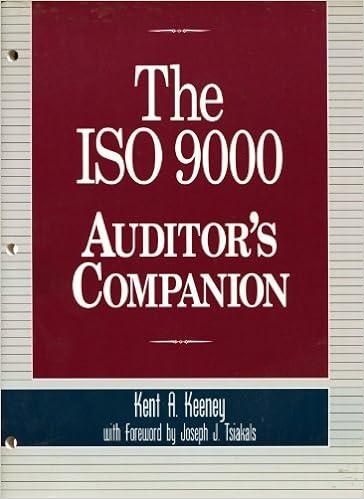Question
Assume you have just been hired as a Finance Manager of Anjung Puteri. The companys earnings before interest and taxes (EBIT) was RM500,000 last year
Assume you have just been hired as a Finance Manager of Anjung Puteri. The companys earnings before interest and taxes (EBIT) was RM500,000 last year and is expected to remain constant over time. Since no expansion capital will be required, Anjung Puteri plans to pay out all earnings as dividends. The management group owns fifty percent (50%) of the stock and the rest is traded in the over-the-counter market.
In your finance course, you learned that most firm owners would be financially better off if the firm used some debt. When you suggested this to your new boss, she encouraged you to pursue the idea. Anjung Puteri is currently financed with all equity, it has 100,000 shares outstanding and the current market price is RM15 per share. If Anjung Puteri were to recapitalize, debt would be used, and the funds received would be used to repurchase stock at the RM15 per share market price. Anjung Puteri is in a 24% tax bracket. The company leases all its equipment and its building. Therefore, Anjung Puteri has no depreciation expense.
From your finance training, you know that there is an optimum relationship between debt and equity at which the market value per share will be maximized. You recall that you can use estimated cash flows, weighted average cost of capital (WACC), and the capital asset pricing model (CAPM) to estimate share value. As a first step you found the following information on Yahoo finance:
The current prime borrowing rate is 5.14% and the current risk-free rate (10 year Malaysia Government bond) is 3.07%. You estimate the market risk premium into the foreseeable future at 8%.
Next, you obtained from a local investment banker the following estimated debt risk premiums and subjective betas for Anjung Puteri at various debt levels:
| Scenario | Amount Borrowed (RM) | Debt Risk Premium (%) | Subjective Beta |
| 1 | 0 | 2.0 | 2.0 |
| 2 | 187,500 | 2.0 | 2.1 |
| 3 | 375,000 | 2.5 | 2.3 |
| 4 | 562,500 | 3.5 | 2.5 |
| 5 | 750,000 | 5.0 | 2.9 |
| 6 | 937,500 | 7.0 | 3.3 |
| 7 | 1,125,000 | 10.0 | 3.7 |
- What will be the amount of equity after repurchasing of stock under each debt scenario?
- What will be the weights of debt and equity under each debt scenario?
- What will be the after-tax cost of debt under each debt scenario?
- What will be the cost of equity (CAPM) under each debt scenario?
- What will be the weighted average cost of capital (WACC) under each debt scenario?
- How many shares will be repurchased and how many will remain outstanding under each debt scenario?
- What is the estimated total asset value and total equity value under each debt scenario?
Hint: Total Asset = Earning/WACC
- What is the estimated market value per share under each debt scenario?
- It is also useful to determine the effect of recapitalization on earnings per share. Calculate the EPS under each debt scenario.
- Briefly explain the trade-offs between debt and equity financing.
Step by Step Solution
There are 3 Steps involved in it
Step: 1

Get Instant Access to Expert-Tailored Solutions
See step-by-step solutions with expert insights and AI powered tools for academic success
Step: 2

Step: 3

Ace Your Homework with AI
Get the answers you need in no time with our AI-driven, step-by-step assistance
Get Started


